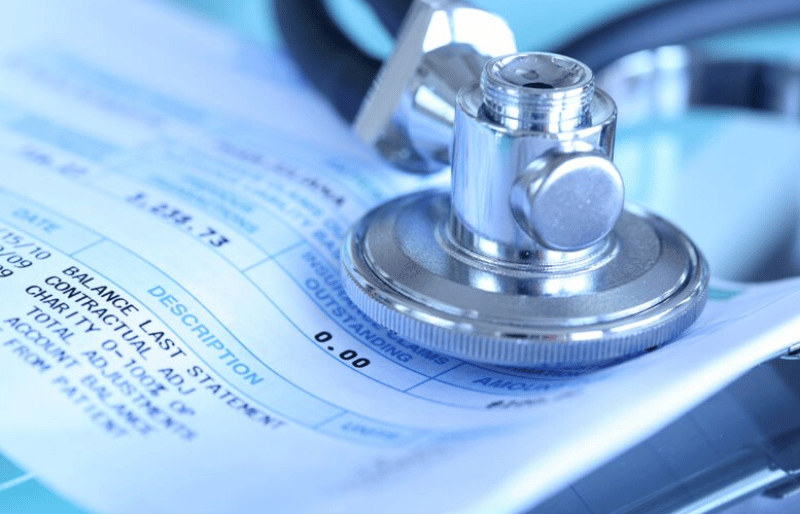Unexpected medical expenses can be a disruption to your finances, potentially creating an unanticipated debt. But unlike other creditors, your healthcare provider usually won’t report the debt to credit bureaus until the debt is sold to a collection agency. At that point, the debt would be reported and appear on your credit report.
What If You Miss Medical Bill Payments?
Like any organization that provides a service to you, your healthcare provider expects to be paid for their services. But unlike a bank or a credit card company, healthcare providers do not review your credit history before providing service. They often provide costly services to patients who may not be able to afford them. Many even have departments dedicated to providing financial assistance for those who qualify. Hospitals also have payment processors who may be able to arrange payment plans for you. A helpful strategy to paying—or even lowering—your medical bills is to communicate with your provider. If you do miss a payment, reach out and explain the circumstances.
Ignoring your medical bills may cause a negative impact on your credit score. After 60-120 days, your provider may sell your debt to a collection agency, and that can negatively impact your credit score. Like other factors that impact your credit score, medical-related debt will stay on your credit report for seven years if it remains unpaid.
Recent Changes to Medical Debt Reporting
As of July 2022, there have been changes to how delinquent medical debt is reported. In a joint effort, the three credit reporting agencies—Equifax, Experian, and TransUnion—announced that paid medical collection debt will no longer appear on your credit report. Starting in 2023, the agencies will no longer include medical collections debt that is less than $500 on your credit report. The period to pay off medical debt before it appears on your credit report was also increased from six months to one year. This grace period gives you and your medical provider time to settle any bill disputes, work with insurance, or come to payment terms. Once the debt is paid, the collections activity will no longer show up on your credit report. According to the Consumer Finance Protection Bureau, these changes will result in two-thirds of medical collections on credit reports no longer being reported.
Reduce Risk to Your Credit History Because of Medical Bills
- Review Bills for Accuracy
As soon as you receive a medical bill, review it. Do the visits, providers, and treatments all align with what you have in your records? Make sure your bill does not have any errors.
- Ask for Corrections
Whether you were charged for a visit that didn’t happen or a test that wasn’t run, reach out to the provider, highlight the error, and ask for an adjustment.
- Review Your Benefits
Another common issue is when your health insurance neglects to cover something to which you’re entitled. Review your medical procedures against your policy coverage and look for discrepancies. Beyond your deductible, were charges not covered that should have been? Contact your insurance company to ask for a review of your bills.
- Sign Up for a Medical Bill Payment Plan
If you can’t pay the full balance of your bill, call your medical provider and ask for a payment plan. They may allow you to pay over time, and depending on the circumstances, the plan may be interest free.
- Consider Alternate Funding
Most hospitals have funds to help low-income patients pay their bills. You may also be able to find relief through local nonprofits or disease-specific funding. For example, if your bills are a result of cancer treatments, CancerCare® has a copayment assistance foundation that may be able to help. Or look for advocacy associations for specific diseases such as the Leukemia & Lymphoma Society® or the HealthWell Foundation®. And some patients set up GoFundMe campaigns where friends and family can make online donations.
- Ask for a Discount
If you don’t have health insurance, you may be charged more for your medical care, so ask if you can pay a lower rate. Also, if you have the means, you might be able to receive a discount if you offer to pay the full amount of the bill quickly or agree to make a large down payment and pay the rest over time.
- Hire a Medical Billing Advocate
If you feel completely overwhelmed by your medical bills, you can turn to a medical billing advocate. They may be able to quickly spot billing errors and can negotiate with the medical provider on your behalf. These advocates charge for their services, so compare vendors and rates.
- Get Low-Cost Health Insurance
If you do not have health insurance and want to reduce the risk of having to pay large medical bills in the future, investigate low cost health insurance plans available in your state under the Affordable Care Act. Many states have lowered the requirements to qualify for Medicaid for health and dental insurance.
Don’t let medical bills or any debt impact your credit. Whether you need a loan to consolidate your debt or to treat you and your family to a vacation after your medical treatment, Mariner Finance may be able to help. Find your local branch now.













